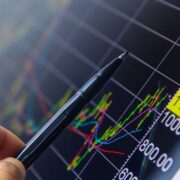Equity security, whose price is moved by systematic changes, macroeconomic in the overall economy is a cyclical stock.
Cyclical stocks are known for seeking the cycles of an economy through expansion, recovery, peak, and recession.
Almost all cyclical stocks belong to businesses that sell discretionary items purchasers can afford to buy more during a booming economy. These stocks are also known from companies that customers choose to spend less with and reduce back on during a recession.
Deeper Understanding of Cyclical Stocks
Some businesses whose stocks are cyclical are car manufacturers, airlines, restaurants, and hotels. When the economy is good, people can buy new cars, upgrade their houses, and travel. When the economy is bad, these discretionary expenses are the things a buyer cut. If a recession is enough, cyclical stocks can become worthless, and businesses may go out of business.
Cyclical stocks rise and reduce with the industrial style. This professed predictability in the movement of these stocks’ prices leads some investors to attempt to limit the market. They buy the stakes at a low point in the business cycle and sell them at a high point. This is why shareholders need to be mindful of the weight of cyclical stocks in their portfolios at any time.
Cyclical stocks are seen as more changeable than noncyclical or defensive stocks, which may be more fix during times of economic weakness. However, they give greater potential for growth since they will likely outweigh the market during times of economic strength. Shareholders looking for long-term growth with managed buoyancy tend to balance their portfolios with a combination of cyclical stocks and defensive stocks.
Shareholders usually choose to use ETFs to acquire exposure to cyclical stocks while enlarging economic cycles. The SPDR ETF series gives one of the most known cyclical ETF investments in the Consumer Discretionary Select Sector Fund.
Cyclical Stocks Samples
Durables, nondurable, and services typically delineate cyclical stocks. Durable goods businesses are involved in the manufacture or distribution of actual products that have an anticipated life span of more than three years. Businesses that manage in this segment are automakers like Ford, appliance manufacturers such as Whirlpool, and Furniture makers like Ethan Allen. The measure of durable goods orders is up in a specific month. It may be a hint of stronger economic activity in the coming months.
Nondurable goods companies produce or distribute soft goods that have an anticipated life span of fewer than three years. Examples of businesses that operate in this segment are sports apparel manufacturer Nike and retail shops such as Nordstrom and Target.
Services are an individual category of cyclical stocks since these businesses do not manufacture or distribute actual products. Walt Disney is one of the best-known firms operating in this space. Also, falling into this category are businesses that operate in the new digital era of streaming media, such as Netflix and Time Warner.
Capital Pro provides digital classes headed by expert and professional analysts with the goal of spreading useful insights about the investing world. Capital Pro Goal is to provide Financial Education.














Comments